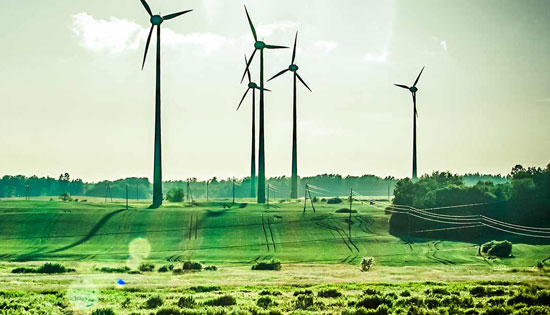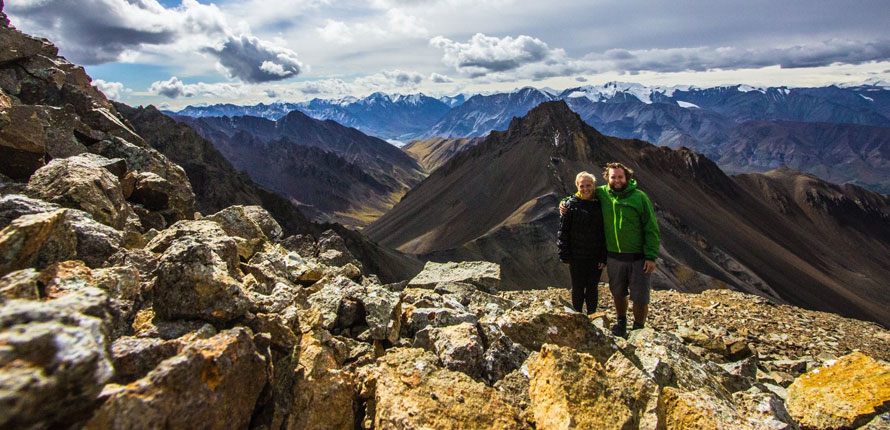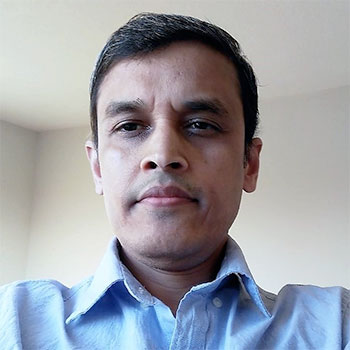Search for academic programs, residence, tours and events and more.
Our Master of Environmental Studies (MES) in Geography allows you to explore a range of research interests, from analyzing the causes and consequences of pressing environmental challenges to identifying pathways to foster sustainable development and protect biodiversity and natural resources.
The MES program also offers opportunities through the Environmental Data Analytics field to explore the application of geomatics to addressing environmental challenges.

Opportunities to do field research in a variety of locations across Canada.
Environmental Data Analytics field meets labour market demands for geospatial and data handling training.
Our program is enhanced by a number of research centres and groups.
The MES can be completed as a two year degree with a thesis or major research paper option, or as a one-year (12 month) degree through specialization in the Environmental Data Analytics field.
The thesis option requires you to complete three courses and a thesis. The thesis option is normally completed in six terms (two years).
The research paper option requires you to complete six courses and a major research paper. The research paper option is normally completed in three terms (one year).
Students can choose to complete the Environmental Data Analytics (EDA) field over one academic year: two terms of course work and one term of research placement.
The EDA field meets labour market demands for people trained in geospatial and data handling related to environmental change and related management, regulatory, planning and policy decision-making. The degree focuses on environmental analytics knowledge generation and dissemination applied to the private, public and non-profit sectors.
Faculty teaching in our MES program support a wide range of research interests, such as:
Our program is enhanced by a number of research centres and groups, including:

"Being able to conduct research in the region I call home has been one of the most rewarding experiences of my life. The entire atmosphere of life in the Yukon inspires me to work in the field of environmental studies."
Stephanie Pike (MES '19)
Take the first step in your graduate education and apply to one of our graduate programs. Follow our three-step admission process — we’ll walk you through how to apply and prepare for your first day as a graduate student.
After you have submitted your OUAC application, paid the non-refundable application fee, and Laurier has received your application, you'll receive an email from gradadmissions@wlu.ca advising you to upload the additional required documentation to Laurier’s Online Registration and Information System (LORIS).
Feb. 1 is the deadline to be considered for any scholarships and/or awards. This means your application should be complete (OUAC application completed and supplemental documents submitted) by this date. Please note, the application process and the uploading of supplemental documentation, which includes references, typically takes two weeks. To avoid disappointment, please apply early.
An application for admission to our MA/MES/MSc program in Geography must include:
Visit our Graduate Admissions Toolkit for more information about applying.
Proficiency in written and spoken English is essential to graduate studies at Laurier. Applicants whose language of instruction during their previous postsecondary education was not in English must submit evidence of proficiency in English. If applicable, results from accepted testing services must be uploaded to LORIS.
Questions? Contact geoggradprogram@wlu.ca.

"I actively participated and learned a great deal about conference organization and building networks across the scholarly academic community in order to promote effective learning and knowledge sharing. Laurier university shaped my theoretical and methodological academic formation and assisted my research career, my debts to Laurier are numerous and profound."
Mohammad Moniruzzaman
Regardless of the type of graduate degree program you intend to pursue, financial planning is important. At Laurier, we want to provide you with as much information as possible about a variety of scholarship and funding opportunities and equip you with the skills to manage your finances effectively in the years to come.

MES students who recently completed the program are employed by/as:
ASPIRE is Laurier's professional skills development training program for graduate students. The program helps you craft an individualized, extracurricular learning plan tailored to your professional journey and entry to the workplace.
Learn about the interests of our faculty members. If you are looking for more information about this program, have questions, or want to set up a meeting, contact a member of our team.
Alison Blay-Palmer
Professor
UNESO Chair on Food, Biodiversity and Sustainability Studies
Sean Doherty
Professor
Jason Goetz
Assistant Professor
Adrienne Johnson
Associate Professor
Homa Kheyrollah Pour
Assistant Professor
Canada Research Chair in Remote Sensing of Environmental Change
Christopher Lemieux
Associate Professor
John McMurry Research Chair in Environmental Geography
Sherri Longboat
Associate Professor
Robert McLeman
Professor
Steven Roberts
Associate Professor
Graduate Officer, Geography
Terah Sportel
Assistant Professor
Andrew Spring
Assistant Professor
Jason Venkiteswaran
Associate Professor
Brent Wolfe
Professor
Associate Vice-President and Dean, Faculty of Graduate and Postdoctoral Studies
Jennifer Baltzer
Associate Professor
Canada Research Chair in Forests and Global Change
Alex Latta
Associate Professor
Debora VanNijnatten
Professor
Think this is the perfect program to continue your education?